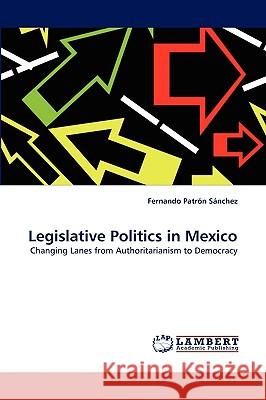Legislative Politics in Mexico » książka
Legislative Politics in Mexico
ISBN-13: 9783838351964 / Angielski / Miękka / 2010 / 256 str.
The undergoing democratic transition in Mexico has produced substantial changes in the political system. In particular, Congress, since 1997, embarked in a continual consolidation process towards a more democratic and active institution. During more than 70 years, Mexico's political system was domain by the executive branch, with a hegemonic party controlling every elective and selective position, rendering congress as a mere appendix to the presidential power. Political plurality has reconfigured substantially Executive-Legislative relations, particularly in the policy making process. The book focuses on the transformation of the Legislative branch and its participation in the Federal Budget of Expenditures process from unified to divided government conditions. This book should be especially useful to Latin American and political scholars, students and policy makers interested in the democratic consolidation processes in Latin America, as well as in legislative politics.
The undergoing democratic transition in Mexico has produced substantial changes in the political system. In particular, Congress, since 1997, embarked in a continual consolidation process towards a more democratic and active institution. During more than 70 years, Mexicos political system was domain by the executive branch, with a hegemonic party controlling every elective and selective position, rendering congress as a mere appendix to the presidential power. Political plurality has reconfigured substantially Executive-Legislative relations, particularly in the policy making process. The book focuses on the transformation of the Legislative branch and its participation in the Federal Budget of Expenditures process from unified to divided government conditions. This book should be especially useful to Latin American and political scholars, students and policy makers interested in the democratic consolidation processes in Latin America, as well as in legislative politics.











